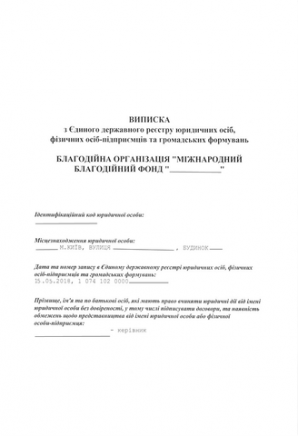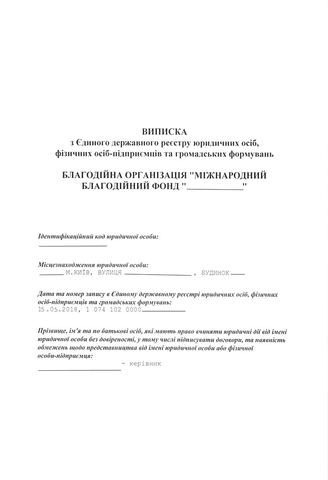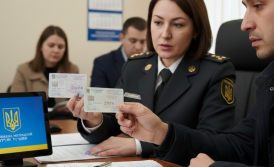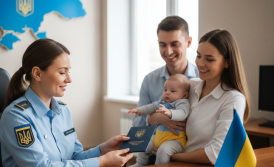How can a charity organization purchase a vehicle abroad for transfer to the military?
Cost of services:
Reviews of our Clients
During these challenging times, when our military urgently needs support, charitable organizations play a crucial role in providing essential resources. One important aspect of this assistance is supplying vehicles to the Armed Forces of Ukraine (AFU). However, the process of purchasing and transferring a vehicle to the AFU requires more than just goodwill. It also demands proper legal and financial documentation. This is especially critical when vehicles are acquired from abroad.
Our extensive experience in assisting charitable organizations, including handling such transactions, will help you not only navigate the complexities of the process but also avoid potential pitfalls. In this article, we will answer key questions our clients frequently face:
- How can a charitable foundation import a vehicle?
- What is the process for bringing a car from abroad for the Armed Forces of Ukraine?
- What risks should be considered to prevent additional tax charges when importing a vehicle for the military?
By understanding the legal requirements and procedures, you can complete this important step smoothly and without unnecessary difficulties. We are here to support you, ensuring that your aid reaches those who need it most.
Now, let’s dive into how a charitable organization can purchase a vehicle abroad for the AFU and properly transfer it to the military.
You might also like: Obtaining a Permit for Importing Military or Dual-Use Goods: A Successful Case Study
Step-by-Step Guide to Bringing a Vehicle to Ukraine for the Military
Based on our experience, we offer a detailed step-by-step guide to help you understand how to import a vehicle to Ukraine for the military, successfully purchasing it abroad and transferring it to our defenders.
1. Identifying Needs and Selecting a Vehicle
- Contact the military to determine their specific requirements regarding the type, specifications, and number of vehicles needed. Obtain a written request or official letter from the military.
- Choose the most suitable make and model based on the military’s needs. Consider factors such as off-road capability, payload capacity, technical condition, and cost.
2. Preparing Documents for the Purchase and Import of a Vehicle for the AFU
- Issue an official order from the charitable foundation (BF) authorizing the search and purchase of a vehicle. The order should specify all vehicle characteristics in accordance with the military’s request.
- Draft a justification letter explaining the economic rationale for the transaction in a free-form format.
- Prepare a statement confirming that the seller has no affiliations with Russian or Belarusian enterprises.
- Obtain confirmation of the ownership structure and ultimate beneficiaries (full name or company name, date of birth or registration date for companies, citizenship, percentage of ownership held by the partner).
- Obtain a letter determining the product classification code used by Ukrainian customs, Ukrainian Classification of Goods for Foreign Economic Activity (UCGFEA).
3. Proper Execution of the Vehicle Purchase Agreement to Ensure a Smooth Transfer from the Charitable Foundation to a Serviceman or the Armed Forces of Ukraine (AFU)
- Prepare an invoice specifying the vehicle’s name, type, and cost.
- Draft a bilingual vehicle purchase agreement. Typically, this is an English-Ukrainian contract, but another foreign language may be used instead of English. The agreement must include: country of origin of the vehicle, delivery terms, delivery deadlines, payment terms and procedures, carrier information, and mandatory contract details, including the full legal names and details of both parties, registration data, initials, and signatures.
- Attach supporting documents, including a scanned copy of the vehicle’s technical passport and the seller’s registration documents.
4. Acquiring Foreign Currency
- In order to purchase a vehicle abroad, the charitable organization must have foreign currency in its account. If the vehicle is being purchased from a non-resident, foreign currency needs to be obtained. Currency acquisition can only take place after the bank has reviewed and approved the document package, which includes the bilingual purchase agreement and other required documents mentioned earlier.
5. Tax Declaration and Fees
- If the seller is a non-resident individual, the charitable organization acts as the tax agent. This means that it is obligated to withhold income tax from the contract amount at a rate of 18%, as well as a 5% military levy on the amount specified in the agreement.
Please note! To report income and taxes in Appendix 4DF of the report "Information on the Amounts of Accrued Income, Withheld and Paid Personal Income Tax and Military Levy," a non-resident individual must have a taxpayer identification number (TIN or РНОКПП). Therefore, before paying income to a non-resident, it is important to check whether they have such a number. If not, the non-resident must obtain it from the Ukrainian tax authorities.
If the taxpayer identification number is missing and has not been obtained, the company will not be able to comply with the requirements of the Tax Code of Ukraine (TCU) for completing Appendix 4DF. This means that, even if taxes are withheld and transferred to the budget, there will be no way to link the payment to the specific individual. In this case, it will be considered an overpayment of personal income tax (PIT) and military levy, not taxes paid on the income of the non-resident. As a result, the company could face a penalty for failing to withhold taxes, amounting to a fine of 10% of the tax amount.
The tax is paid to the Ukrainian budget on the day the funds are transferred to the non-resident. The non-resident will receive the payment after the 18% tax has been deducted.
You might also like: Why Does a Foreigner Need to Obtain a TIN in Ukraine?
Legal Support for Vehicle Transfer to the AFU
If your organization has not previously handled the importation of vehicles for the military, it is important that the transfer of the vehicle by the charitable foundation is managed under the guidance of professionals. Managing this process requires not only knowledge and experience but also accuracy at every step. Our team of lawyers is well-versed in the intricacies of properly transferring a vehicle to the Armed Forces of Ukraine (AFU), avoiding mistakes, and ensuring compliance with all legal requirements.
We focus on the correct preparation of documents, adherence to customs procedures, and fulfillment of all tax obligations. This ensures the safety and efficiency of each operation. Your support for the Armed Forces of Ukraine should not only be a good deed but also legally sound.
Contact us today for professional advice and support at every stage of this important process for the AFU and Ukraine!
Our clients














